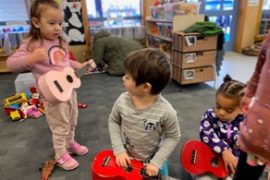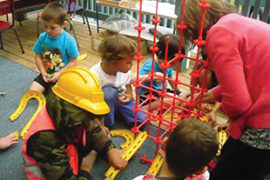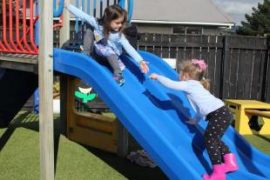Action not words needed for early childhood education
Kindergartens are campaigning for the restoration of funding for fully qualified early childhood education teachers, NZ Kindergartens (NZK) Chief Executive Jill Bond said today.
“The Government has so far failed to honour the coalition agreement to restore 100 per cent funding for fully qualified teachers”, she said.
This failure to move on improving funding is at odds with the Government’s Child and Youth Wellbeing Strategy, which has learning and developing as one of its key principles.
It’s time for action not words. We have been waiting patiently, but we can no longer wait and are speaking out about this important issue.
“Given the Government’s focus on children’s wellbeing – especially for disadvantaged children – we can’t understand why it is neglecting a commitment to fund qualified teachers who are known to directly influence positive outcomes for children”, Ms Bond said.
Investment in high quality early childhood education can bring economic returns around 10 times its costs. These returns include lower costs for schooling through less need for learning support, lower health costs and decreased social and economic inequalities.
Kindergartens offer high quality education because all teachers employed under the NZK umbrella are fully qualified, but their funding has fallen behind for 11 years.
Kindergartens are receiving funding that covers only 80 per cent of teacher salaries. Funding per hour was $12.26 in 2008 and only $12.29 at the start of 2019. From July 2019 the rate was $12.71.
“Kindergartens had continued to meet the shortfall through careful financial management, fund raising and using reserves but could no longer keep up”, Ms Bond said.
The Government will say it is putting more money into early childhood education, but that funding doesn’t provide significantly more funding per child, nor meet the funding needed to cover fully qualified teachers’ salaries.
Ninety per cent of kindergarten funding comes from the Government. We can’t keep absorbing rising costs – nor do we want to pass on costs to parents who already contribute to about 5 per cent of costs.
There is a wealth of research that demonstrates the positive impact that quality education has on the development and wellbeing of young children.
“Children start school ready to learn, develop social skills, learn about problem solving and co-operating with others. They have better physical and mental health throughout their lives”, Ms Bond said.
Researchers found qualified teachers were better at extending children’s learning than non- qualified staff. The impact on the children’s learning was still visible when they were 16 years old.
Qualified teachers are registered and renew practising certificates every three years to show they continue to meet professional standards and remain suitable to teach young children.








